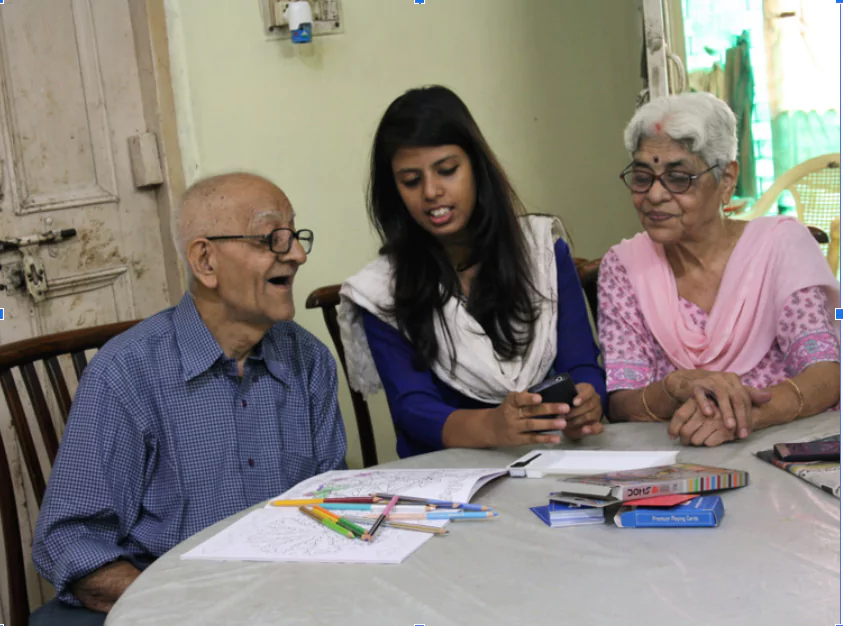By Sujata Jayaprakash, Family & Youth Counsellor
The elderly population faces a high risk of mental health issues due to a variety of factors including biological changes, social factors, and pre-existing health conditions.
Focus on the quality of life
Understanding these risks and implementing effective prevention and after-care strategies can significantly improve their quality of life. This encompasses a holistic approach to healthcare as it considers all aspects of a person’s well-being.
Dealing with changes in the physical, emotional, and social realm
Biological changes like Alzheimer’s diseases and other forms of dementia are more common among the elderly. Illnesses such as heart disease, diabetes and arthritis can also affect the mental health of the elderly. Another factor that majorly contributes to mental health issues is hearing and vision loss which leads to social isolation and depression among both men and women.
Often the elderly are affected by the loss of their spouse, friends and reduced social networks which leads to a feeling of loneliness. They also seem to lose their identity and purpose when they transition from active work life to retirement life. Slower processing speeds and difficulties with attention and problem solving is often frustrating for them.
Another factor that adds to their mental health burden is their medication side effects. The elderly population are often on multiple medications as per their health conditions which impacts their mental health well-being.
Encouragement to take ownership for their well-being
Prevention is better than cure so there are a few things that we could encourage our elderly population to do to help them with their mental well-being even while they are aging, what we can call aging gracefully. We need to encourage them to exercise regularly to stay physically fit and improve their mood and cognitive function. They need to also eat a balanced diet to support their brain health and overall well-being and finally to go for their regular medical check-ups for any early detection and management of chronic conditions.

A supportive community and a safe environment
There are also other factors that will help with mental well-being and that is engaging in activities for mental stimulation e.g. puzzles, reading and learning new skills, to keep the brain active. Family members must regularly interact with them to make them feel strong family connections.
However, sometimes we have missed most of all or a few of the above knowingly or unknowingly so we need to have the after-care strategies in place to help and support the elderly. One of the most helpful are the support groups where they can interact with peer groups and share their experiences and strategies. Providing structured activities and social interaction opportunities helps them have a safe community around them.

We also need to ensure that their living environments are safe and supportive to prevent risks like falling etc. Above all every family member, big or small, needs to interact with them and make sure they are cared for and appreciated and encourage them to keep their spirits high and make them happy. By addressing these factors and implementing comprehensive prevention and after-care strategies, we can significantly improve the mental health and overall well-being of the elderly population.
